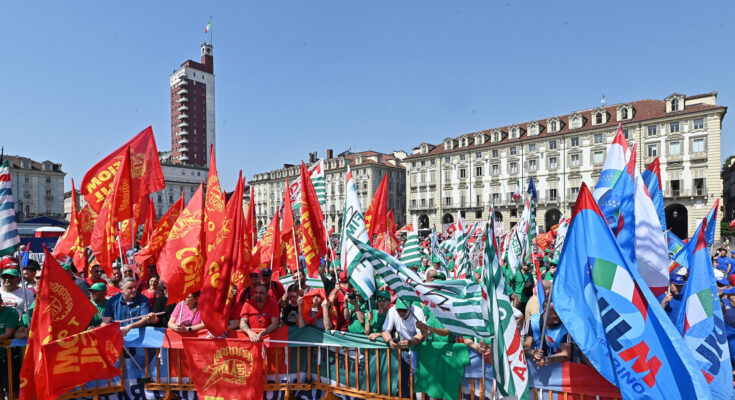Salary increase of 205 euros in four years, flexibility, flexible growth of benefits, guarantees to combat insecurity, training. The hypothetical metal workers’ contract agreement signed by Federmeccanica/Assistal and the Fim, Fiom and Uilm unions left both parties satisfied after 4 days of non-stop negotiations and long, fluctuating disputes that lasted for 17 months, which also resulted in strikes and demonstrations lasting more than 40 hours.
At stake are regulations for the next three years involving Italy’s 1.5 million workers, a key part of the country’s collective bargaining system. Both trade unions and business associations have underlined contractual balancing points that take into account the needs of both parties: inflation recovery, guarantees and safeguards of national contracts on the one hand and on the other hand maintaining the competitiveness of the Italian production system threatened by import duties, high energy costs and geopolitical instability.
In a joint note after the signing, Fim-Fiom-Uilm secretaries general Ferdinando Uliano, Michele De Palma and Rocco Palombella underlined how “these were very painful negotiations, but we managed to overcome the distance and sign a good contract. We preserved the purchasing power of metalworkers and strengthened rights and protections. The increase in wages, the start of a trial reduction in working hours and the stabilization of unstable labor relations were our cornerstones and we got them”.
For Federmeccanica’s Simone Bettini “our desire has always been clear: to sign the Contract, and at the same time keep in mind the situation we face, because the renewal of the CCNl must always be contextualized, that is, placed in today’s reality”, adding that the agreement respects “two important conditions for us: Competitiveness and Sustainability.” And for Assistel’s Roberto Rossi, “the sense of responsibility shown by all parties involved” prevailed. This “allows for an agreement based on balance and resilience to be reached.
Therefore, the economic part provides an increase of 205 euros for the entire duration of the contract: a minimum of 177 euros in the next three years (53 euros/month in 2026, 59 euros/month in 2027, and 65 euros/month in 2028) plus approximately 28 euros already paid in June 2025. The increase from 200 to 250 euros is also expected to be a flexible benefit year which, again in the period 2021-2028, reaching the amount of 1,750 euros net for each employee.
An extension of working hours/year for multi-week working hours to 96 hours is also being considered “to better balance the load of activities and simultaneously raising the threshold between multi-week working hours and overtime to 128 hours within the excluded quota” and “Increasing paid annual leave for collective use from 5 days (40 hours) to 7 days (64 hours) per year for all workers and a corresponding reduction in Par for individual use. It has been estimated that the term of the contract may exceed 12 months in duration based on certain reasons; starting in 2027 such reasons can be used if at least 20% of the previous fixed-term contracts are stabilized.
Reproduction protected by law © Copyright ANSA



